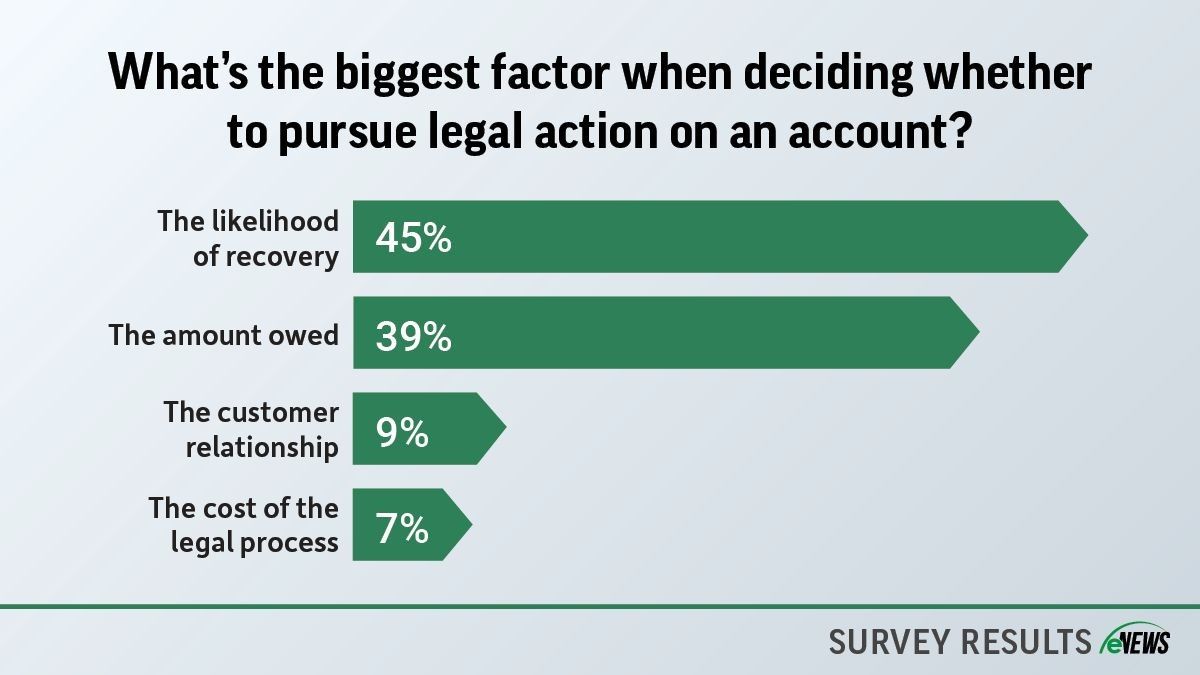eNews, Leadership
I want to earn a designation. Where do I start?

In the dynamic field of B2B credit management, establishing your credibility and showcasing your expertise is essential. One of the most recognized ways to achieve this is by earning a Professional Designation from the National Association of Credit Management (NACM). However, the journey to certification can feel daunting, with numerous paths and options available.
Why it matters: These designations are industry-recognized benchmarks of proficiency, commitment and ethical standards in credit management. They not only validate your knowledge and skills but also significantly boost your credibility with employers, clients and peers. An NACM designation can open doors to career advancement, higher earning potential and increased job security.
Before embarking on the journey to earn an NACM designation, it’s key to understand your motivations. Knowing your “why” provides a foundation for your efforts and keeps you focused during the process.
Know your why
- Career Advancement: Achieving a designation can lead to promotions, raises and new job opportunities.
- Professional Credibility: A designation is a mark of expertise and commitment, enhancing your reputation in the industry.
- Personal Development: The process of earning a designation involves learning and growth, which can be personally fulfilling and build confidence.
- Networking Opportunities: Joining a community of NACM-certified professionals can open doors to valuable connections and resources.
Reflect on your personal motivations and how an NACM designation aligns with your career goals. This clarity will guide you through the challenges and help you stay committed.
Joining an association like NACM introduces credit managers to resources, knowledge and professional development needed to earn certifications. “Once I joined NACM, I knew I wanted to start working towards my designations,” said Robbin Windham, CBA, manager, credit and collections at WESCO Distribution, Inc. (Little Rock, AR). “I was so impressed talking with others who had completed their designation, I thought to myself, ‘I want what they have.’”
Choose your path
Deciding where to start depends on your current experience and career goals. NACM’s Career Roadmap outlines the different journeys to a designation that are available. Points are awarded for both formal and continuing education, work experience, participation with both the Affiliated Associated and National levels, as well as special activities in which you may be involved.
NACM offers six designations tailored to various stages of a credit manager’s career. It is important to understand the differences of each. Here are some examples of paths you may take:
Ideal for: Entry-level credit professionals.
Focus: Basic financial statement analysis, business credit principles, and accounting.
Requirements: Completion of three core courses: Basic Financial Accounting, Financial Statement Analysis I and Business Credit Principles, followed by passing the CBA exam.
- Certified Credit Risk Analyst (CCRA)
Ideal for: Any level credit professional holding a CBA designation.
Focus: Advanced financial analysis and risk skills.
Requirements: The CBA designation courses plus Intermediate Financial Statement Analysis.
- Credit Business Fellow (CBF)
Ideal for: Mid-level credit professionals with a CBA designation.
Focus: Competence in business and credit law.
Requirements: Hold a CBA designation, complete two additional courses: Business Law and Credit Law, accumulate 75 Roadmap points and pass the CBF exam.
- Certified Credit Executive (CCE)
Ideal for: Senior-level credit managers and executives.
Focus: High-level credit management, leadership and risk analysis.
Requirements: Hold a CBF designation or degree plus 10 years of experience in credit management, plus 125 Roadmap points and pass the rigorous CCE exam. OR bypass the 10 years of experience by completing the Graduate School of Credit and Financial Management and passing the CCE exam.
Two additional designations that focus on global credit skills include:
- Certified International Credit Professional (CICP): The CICP is an academic-based designation earned by passing FCIB’s International Credit and Risk Management (ICRM) online course designed to educate credit professionals on global credit and risk management.
- International Certified Credit Executive (ICCE): The ICCE designation is created for international credit and risk analysis professionals ready to excel beyond their CICP designation. ICCEs engage in ongoing education and participate in their associations by serving on committees, work groups or completing surveys. They also mentor through the FCIB Discussion Board or LinkedIn and take leadership roles as panelists or speakers.
Guillermo De La Cerda, CICP, credit and collections analyst at Oracle America, Inc. (San Antonio, TX), learned about FCIB’s international designations because this company is a member of FCIB and relies on FCIB’s educational resources for training opportunities.
“In the ICRM course, your peers will provide a variety of perspectives and real-life situations from around the world,” De La Cerda said. “I suggest that credit professionals should pay attention, read and understand the important aspects of credit management to succeed in the course.”
Leverage NACM resources
Ramona Johnson, CCE, credit and accounts receivable manager at Talbert Building Supply, Inc. (Roxboro, NC), was inspired by her early employer to earn her CCE designation.
If you are still unsure about how to begin the journey to earn an NACM professional designation, let us know. Any Affiliated Association staff or NACM National staff member can help you.
FCIB is an avenue for not only international trade but career growth. Timothy Bastian, ICCE, senior director of corporate risk at Western Oilfields Supply Company dba Rain for Rent (Bakersfield, CA), said he was one of the first to earn the CICP designation and it was becoming an active participant in FCIB that encouraged him to get his ICCE. “FCIB started developing the ICCE designation,” he said. “I think people should consider using these designations for their own development and to support and better understand what their company is going through.”
The bottom line: While the process of earning a Professional Certification may seem overwhelming at first, breaking it down into manageable steps can make it more approachable.





